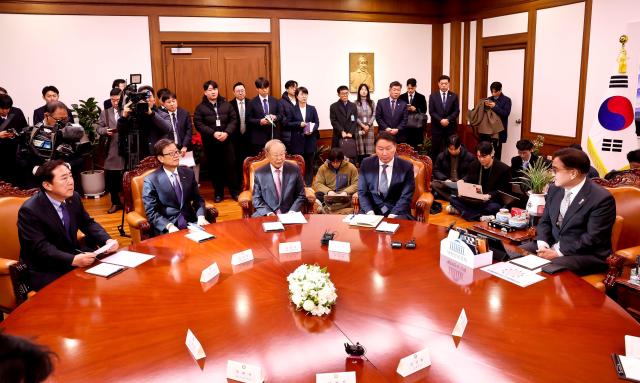
SEOUL, December 18 (AJP) - Six major South Korean business organizations on Monday urged a review of a new law requiring companies to submit documents and testify before parliament, arguing that it could expose sensitive corporate information and harm the nation's competitiveness.
The Parliamentary Testimony Act, passed by the National Assembly last month, mandates that companies comply with such requests, regardless of concerns about trade secrets. It also requires executives to appear remotely, even during overseas business trips or illness.
The law was enacted after some chief executives failed to appear at parliamentary hearings, citing overseas travel, and refused to submit data requested by lawmakers, citing confidentiality.
"This legislation could significantly impact corporate management activities and national competitiveness," the business organizations said in a joint statement. They warned that mandatory submission of parliamentary-requested materials "risks exposing corporate secrets and core technologies, potentially weakening competitiveness in global markets."
The Korea Chamber of Commerce and Industry, along with five other business groups, expressed concern that foreign companies investing in South Korea "may reconsider their business continuity due to concerns about trade secret leaks." They argued that forcing executives to attend parliamentary sessions would disrupt normal business operations.
The business groups also noted that the law may conflict with constitutional principles protecting business freedom and privacy rights, as well as personal information protection laws. They emphasized that "major competing nations are engaged in national competition over future advanced industries such as AI and semiconductors, while uncertainties in domestic and international business environments are intensifying."
Lawmakers and business leaders are now in discussions to address these concerns, with both sides indicating a willingness to explore potential adjustments to the law's implementation.
Copyright ⓒ Aju Press All rights reserved.


View more comments